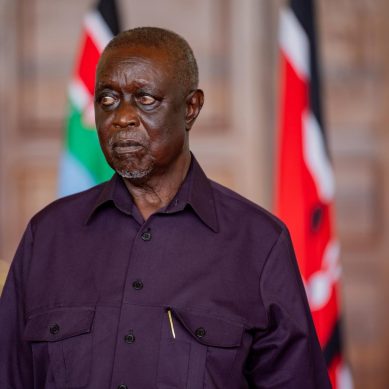
A two-year campaign to weed out banditry and cattle rustling in northern Kenya is bearing fruit. The outcome follows from successful implementation of a community policing programme that supplements the usually overstretched and underequipped national police service.
In Marsabit, Isiolo and Samburu and Laikipia counties in northern Kenya, dozens of community warriors, locally known as morans and whose main responsibility in the past was to attack motorists on highways or conduct armed raids to steal cattle, have now turned to legitimate business with opportunities in livestock trade at local trading centres.
Owing to cultural norms demand community warriors to spend most of their time in the bush away from public view, convincing them to abandon the practice has been a slow and lengthy process undertaken by respected community elders.
Communities in the region have introduced alternative means of eking out a living mostly through business ventures.
Salim Rachachore, the Samburu East peace chair and a former chief, is among the elders who have been on frontline to advocate for harmony in the volatile northern region by encouraging morans to embrace alternative sources of livelihood, an initiative supported by a community based organisation – Indigenous Movement for Peace Advancement and Conflict Transformation (IMPACT).
“Morans are suspected to be used in crime. I have tried to engage and encourage them to shun cattle rustling and attacking motorists. Peace starts with the young people,” notes Rachachore.
Speaking during IMPACT community accountability and feedback forum in Juakali, Laikipia County, Rachachore said the two-year campaign has resulted in some 62 moran age group leaders abandoning criminal activities and become peace ambassadors.
Rachachore reveals that they have supported morans with grants to enable them kick start their lives away from involvement in the outlawed activities.
“We offered them grants to ensure they embrace peace, each of the four groups was given Ksh200,000. I monitor their progress and it is bearing fruit through their commitment,” the peace chair says.
Additionally, he says, some of the morans through their savings have been able to restock their livestock without conducting raids as it had been the norm in the past. The morans recounted their past criminal activities which often resulted in loss of lives.
Pius Lekwles, a moran from Samburu and one of the IMPACT grant beneficiaries, says he is able to support himself through goats business.
“IMPACT came in at a time when we had rampant attacks on motorists on highways and cattle rustling. We informed them of our major challenge and they have addressed it. We are now peace ambassadors of our community,” notes Lekwles.
He points out that through support after quitting crime, they have not only learnt the art of trading in livestock but they have developed a culture of saving their earnings in banks despite their limited formal education.
IMPACT director of programmes John Ting’oi says the organisation is committed to supporting the livelihood of the community.
“Peace is a software where we talk with the community to address causes of conflict including involving the morans who are the key players on the issues of peace. We developed an alternative way of living rather than depending on livestock or cattle rustling,” notes Ting’oi.
He further reveals that about four moran groups have benefitted with Sh800, 000 to start livestock marketing and at the same time use them as peace promoters to influence other youth to stop banditry.
- A Tell / KNA report / By Muturi Mwangi







